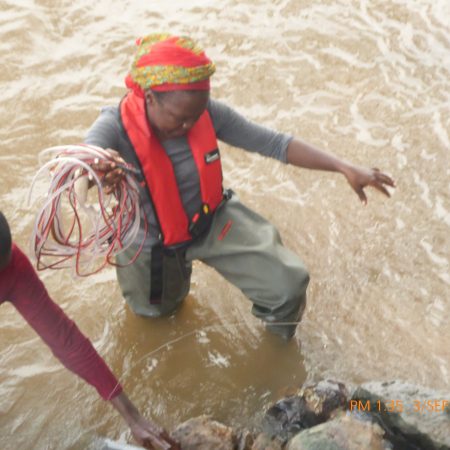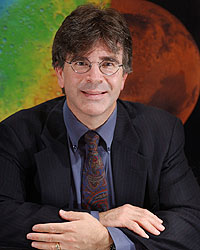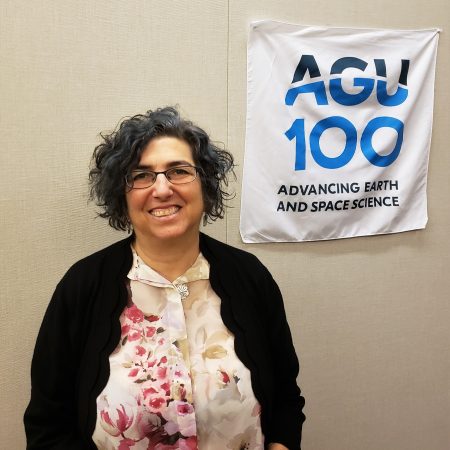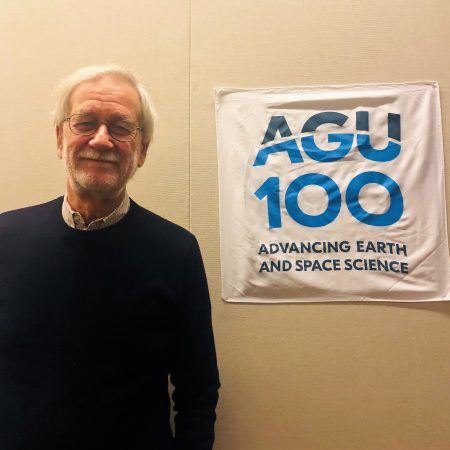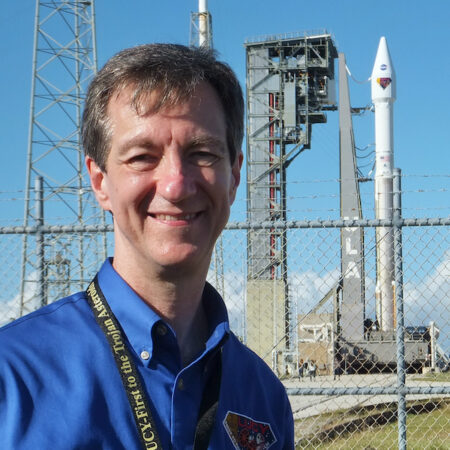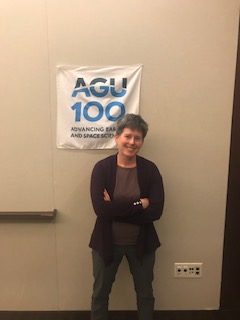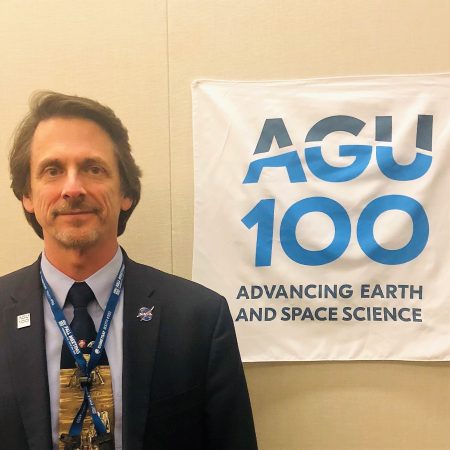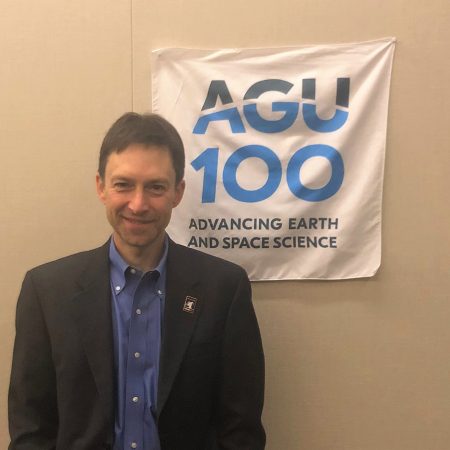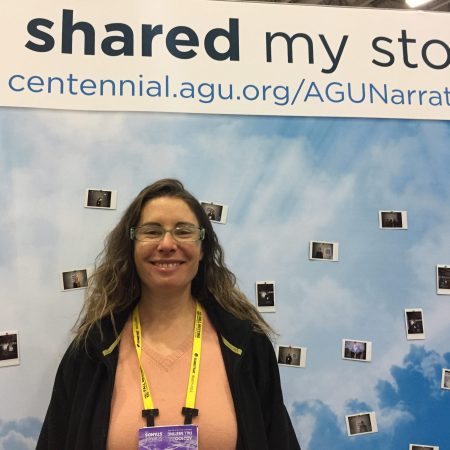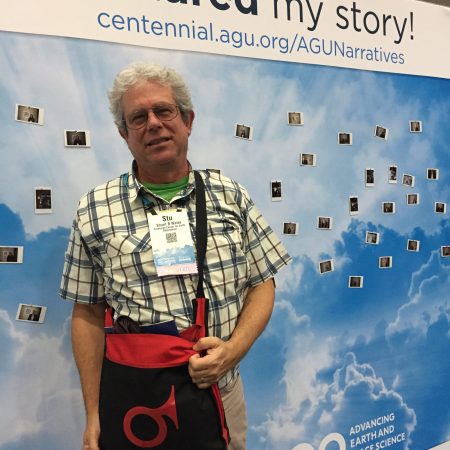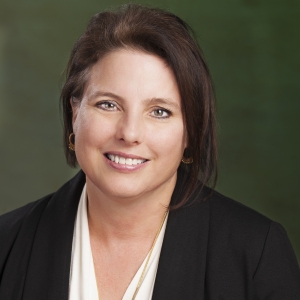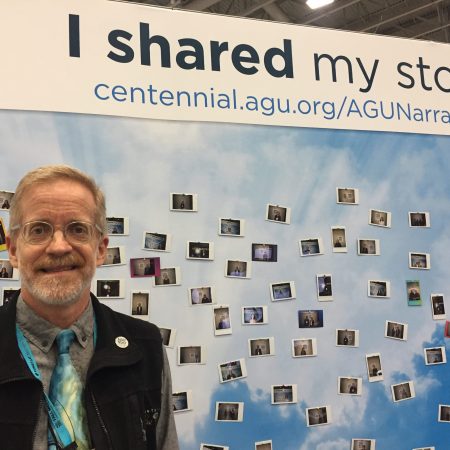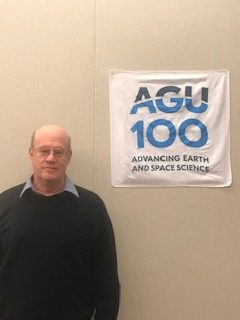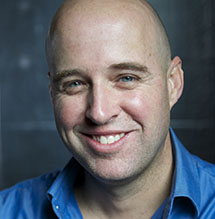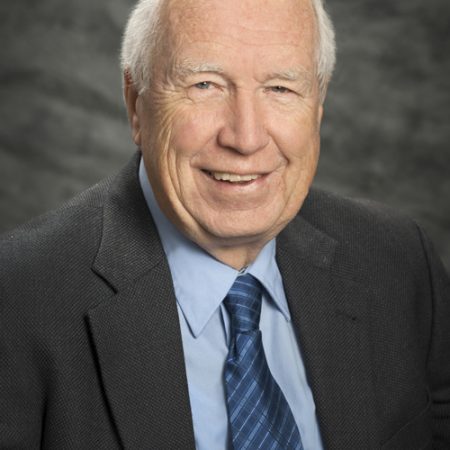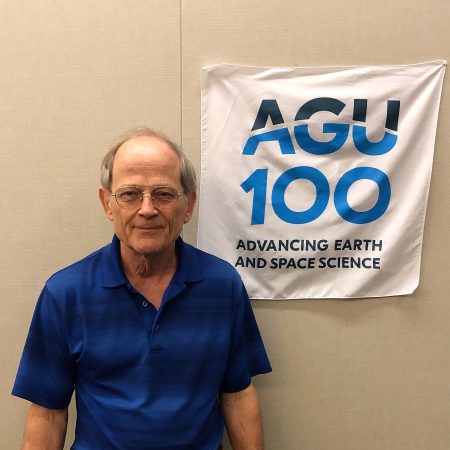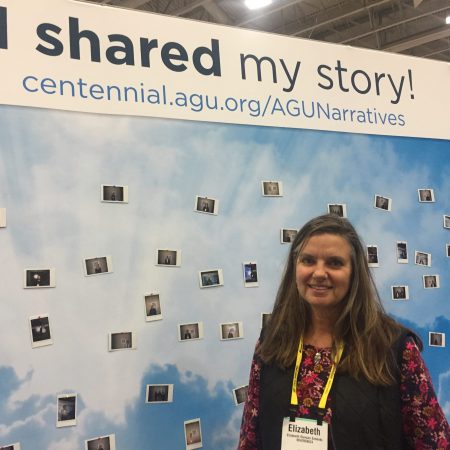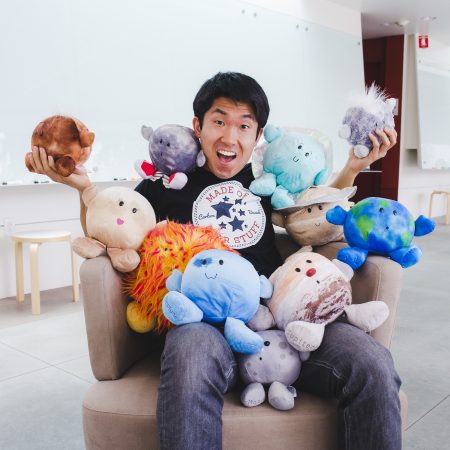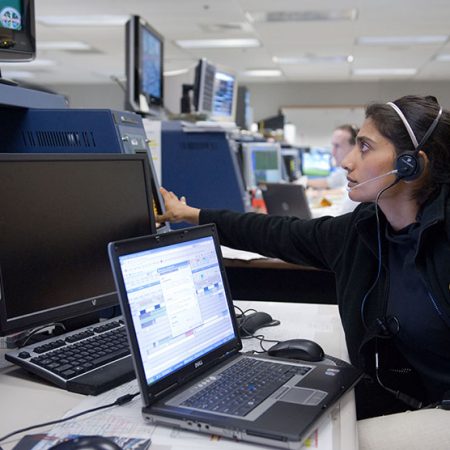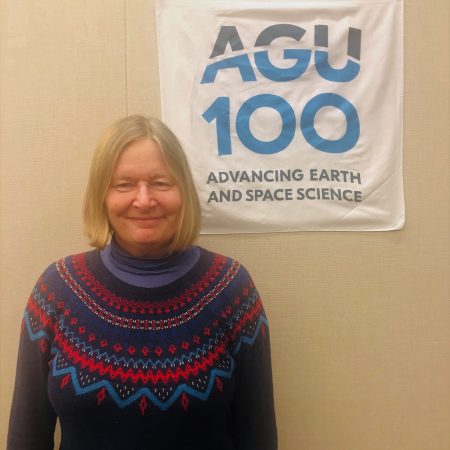Refine
Date Range Clear
Recorded by Clear
Keywords Clear
Partnerships Clear
- No matching terms.
Organizations Clear
- American Geophysical Union 67
- NASA 18
- National Aeronautics and Space Administration 9
- The American Geophysical Union 5
- American Geopysical Union 4
- 14 more
Places Clear
- AGU 2018 Fall Meeting 167
- Washington DC 164
- AGU 2019 Fall Meeting 22
- San Francisco 21
- AGU 2017 Fall Meeting 5
- 11 more
Languages Clear
Initiatives Clear
- No matching terms.
Gail Skofronick-Jackson, Program Manager at NASA Headquarters, Science Mission Directorate, knows more about snow than most Tallahassee, Fla. residents. In fact, it may be safe to say that the program manager at NASA Headquarters knows more about snow than most...
Catherine Mushi, PhD student studying Water Resources Engineering at the University of Dar es Salaam discusses her work in the Congo River Basin and collaborating with peers both in the field and within the community. She shares her experience as...
Chasing storms is “a lot of boredom, and a little bit of excitement”, as Don MacGorman says. He discusses the planning that goes into storm chasing and all the precautions he and his team take to ensure they remain safe...
James Garvin is the Chief Scientist at NASA's Goddard Space Flight Center. Dr. Garvin has been at NASA for 35 years in a variety of roles and missions, and is well known for his incredible work in NASA's Mars explorational...
Jill Marshall, Assistant Professor of Geology at the University of Arkansas thought she was ready to go to college, but there she was on the campus of Boston University as a freshman overwhelmed by her surroundings and on shaky financial...
Not every scientist can boast about putting an end to Biblical-level plagues. But NASA Senior Earth Scientist Compton Tucker helped to end periodic locust swarms which pop up in dry parts of the world and go onto wreak havoc on...
As the program scientist in NASA’s Planetary Science Division and the Planetary Defense Coordination Office, Tom Statler works with mission teams as they send robots to asteroids and other entities in our Solar System. From a science-rich upbringing to his...
“What is the earth saying to us?” Jackie Caplan-Auerbach is a volcano seismologist with the Western Washington University geology department. Jackie studies ice avalanches, which can happen at any time. Most ice landslides do not give warnings, but some do....
Steven Clarke, NASA's Deputy Associate Administrator for Exploration, discusses his life in science and engineering. Currently tasked with bridging NASA's efforts on human and robotic missions to coordinate scientific requirements for going to the Moon and Mars, he has seen...
As a radio astronomer at the Jet Propulsion lab at NASA, Joseph Lazio walks us through his work in radio astronomy and career at NASA. He helped design radio telescopes to solve the mystery of why a hidden star was...
Adeena Teres is a high school science teacher in Florida, although she tried a few different careers before following her passion for teaching. As a teacher, there are always opportunities to inspire students either into science careers or towards other...
“When you find yourself climbing San Bruno Mountain just south of San Francisco with a butterfly net collecting mission blue butterflies to repopulate on Earth Day, it doesn't get better than this.” Stuart Weiss is passionate about conservation ecology. He’s...
Dr. Russanne Low works for the Institute for Global Environmental Strategies, with much of her work centering on promoting citizen science. Listen to Dr. Low discuss the obstacles she's had to overcome, how the science community has changed for the...
Steve Montzka has been at NOAA for 28 years, working on atmospheric science, atmosphere chemistry, and trace gases in the atmosphere. He started there as a post-doc, drawn by the work he saw NOAA scientists doing on the hole in...
President-elect of AGU natural hazards focus group and Northwestern University seismologist delights in getting away from conventional wisdom and pointing out when there’s Much Ado about Nothing. He reflected on his career trajectory from research on space to the depths...
Riley Duren is a Research Scientist at the University of Arizona and an Engineering Fellow at NASA’s Jet Propulsion Laboratory. His current research focus is developing greenhouse gas monitoring systems to support decision-making about climate. Listen to Riley discuss why...
Dr. Gurnett began flying model planes at an early age. Little did he know that this passion of his would propel him to become a pioneer in space physics. In this interview Gurnett talks about his improbable journey to the...
Bruce Wielicki, a NASA Langley climate scientist, discusses his collaboration with economists to help non-scientists understand how climate change will hit them in the wallet, and how they could reduce that risk with modest investments in improved climate science. He...
Engaging young students outside of the classroom can help further a life-long interest in science. Elizabeth Eubanks is trying to bring these kinds of experiences to as many kids as she can. As a science teacher, she’s heard from students...
Michael Wong is just as comfortable talking about science as he is with working on it. Currently a post doc at the University of Washington in Seattle, he talks about his work and path through science, from being inspired as...
Mamta Nagaraja started her career as an engineer but has adroitly transitioned into a position in science communications at NASA, where she strives to craft science into stories that will inspire others. Listen to Dr. Nagaraja discuss her path to...
Karen Prestegaard is a professor of hydrology at the University of Maryland, and she studies rivers, wetlands, watersheds, water quality, minerals, floods, and rainfall and watershed management. As a graduate student, the California Coastal Commission hired Karen to study Los...
!["As soon as it [snow] lands, it starts to metamorphosize" an interview with Gail Skofronick - Jackson](https://archive.storycorps.org/uploads/2019/01/181210_Jackson-1-450x450.jpg)
